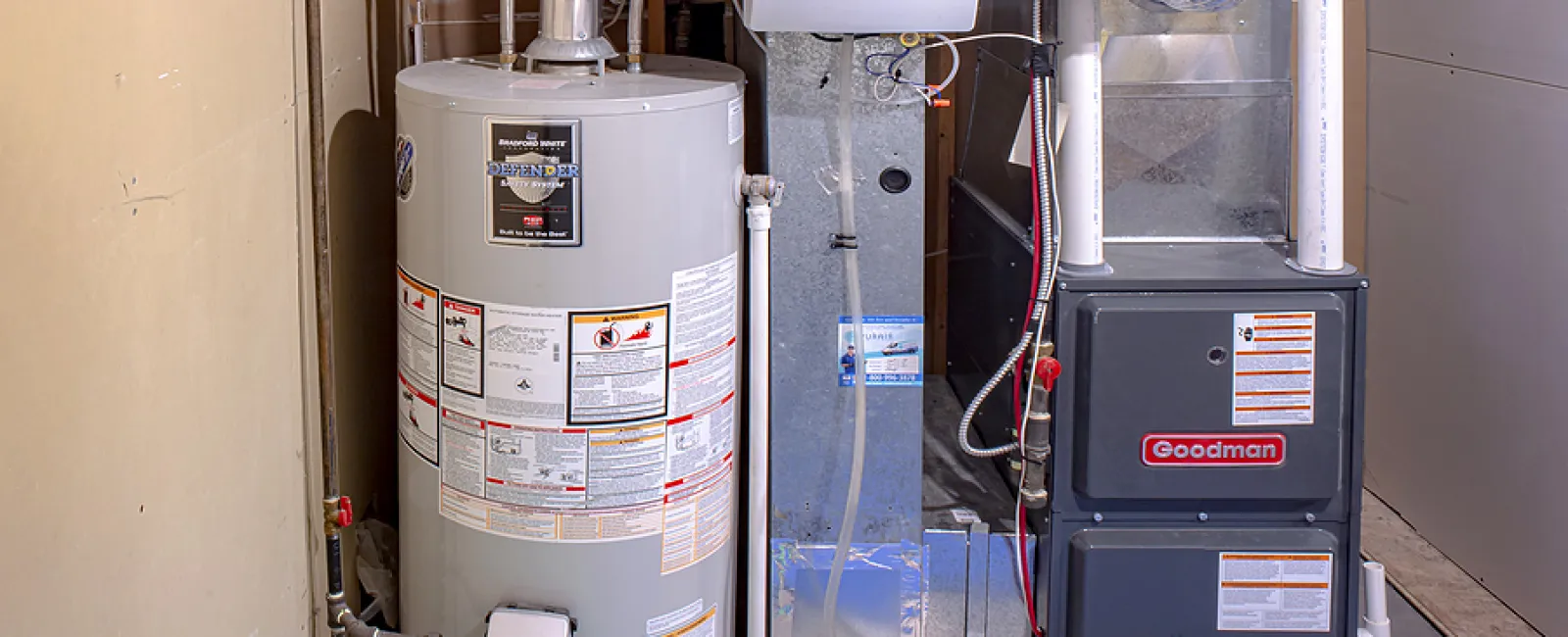Regarding heating your home, two common options are boilers and furnaces. Each of these systems operates differently, and understanding the principles of how they work can help you make an informed choice for your home. In this article, we will explore the functioning of a boiler heating system and compare boiler vs furnace to help you decide which heating solution best suits your needs.
How Does a Boiler Work?
A boiler heater is a central heating system that uses water or steam to distribute heat throughout your home. Here's how it works:
- Fuel Combustion: The process begins with the combustion of a fuel source, commonly natural gas, oil, or propane, inside the boiler. The burning fuel generates heat in the form of hot gases.
- Heat Exchanger: The hot gases produced during combustion pass through a heat exchanger within the boiler. This heat exchanger is a vital component that transfers the heat from the gases to the water.
- Water or Steam Production: In a boiler system, water or, in some cases, a special fluid is heated by the heat exchanger. This heat energy is then converted into either hot water or steam, depending on the type of boiler.
- Distribution: The hot water or steam is then distributed throughout your home using a network of pipes, radiators, or baseboard heaters. In the case of steam, it travels through the pipes and radiators and condenses back into water as it releases heat.
- Radiators or Baseboard Heaters: Radiators or baseboard heaters are strategically placed throughout the house. These devices release heat into the rooms by radiating it from their surfaces. The surrounding air is warmed as the hot water or steam flows through them.
- Return to the Boiler: Once the hot water or steam has released its heat, it returns to the boiler to be reheated and circulated. This process continues to maintain a consistent and comfortable temperature within your home.
Advantages of a Boiler Heating System:
- Efficiency: Boiler systems are known for their high efficiency, as they can evenly distribute heat and maintain consistent warmth throughout your home.
- Zoning Control: Boiler systems allow for easy zoning, enabling you to control the temperature independently in different areas of your home.
- Durability: Boilers are durable and have a long lifespan, reducing the need for frequent replacements.
- Cleaner Air: Unlike furnaces, boilers do not circulate air, which can reduce the circulation of dust and allergens in your home.
Boiler vs Furnace: A Comparison
Furnaces are another popular heating option for homes, and they work differently from boilers. Let's compare the two:
Heating Method:
- Boiler: Heats water or steam, then distributed to radiators or baseboard heaters.
- Furnace: Heats air and uses a blower to circulate the warm air through ducts and vents.
Heat Distribution:
- Boiler: Radiators or baseboard heaters release heat directly into rooms.
- Furnace: Air vents and ducts distribute warm air throughout your home.
Energy Efficiency:
- Boiler: Typically more energy-efficient as they distribute heat evenly without duct losses.
- Furnace: Duct losses can result in slightly lower efficiency.
Zoning:
- Boiler: Easily supports zoning for individual room temperature control.
- Furnace: Zoning may be less straightforward and effective.
Installation:
- Boiler: Installation can be more complex and may require extensive piping.
- Furnace: Generally easier to install, especially in homes with existing ductwork.
Maintenance:
- Boiler: Requires periodic maintenance, including water level checks, but often has a longer lifespan.
- Furnace: Typically requires filter changes and blower maintenance, with a shorter lifespan than boilers.
Allergen Control:
- Boiler: Reduced allergen circulation, as it does not use air ducts.
- Furnace: Air circulation may lead to more dust and allergen distribution.
In the debate of boiler vs furnace, both heating systems have their merits. Understanding how a boiler system works provides insight into its efficient and even heat distribution. Boilers offer the advantage of precise zoning, durability, and reduced allergen circulation, making them an excellent choice for many homes.
When choosing between a boiler and a furnace, consider your specific heating needs, the existing infrastructure of your home, and your personal preferences. Both systems can effectively keep your home warm, but the choice ultimately depends on what suits your lifestyle and home environment best. If you need any help, contact Stahl Plumbing today.

